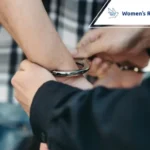SACRAMENTO, California — A new law reclassifying human trafficking of a minor for commercial sex acts as a “serious felony” took effect on January 1, 2024, sparking significant debate less than six months after it stirred controversy in the Capitol.
Previously, child sex trafficking carried a sentence of up to 12 years in prison. If force, fear, fraud, coercion, violence, or other elements were involved, the sentence could be increased to 15 years to life. The infliction of great bodily harm on the victim during trafficking could add up to 10 years to the prison term. The new law aims to impose lengthier prison terms and the possibility of life sentences for those convicted of this crime.
Lawmakers, spanning both political parties, had made several unsuccessful attempts in the past to reclassify child sex trafficking as a serious felony, triggering strikes under California Three-Strikes Law. Despite multiple efforts in 2007, 2009, 2011, 2013, 2017, and three times in 2021, the reclassification faced consistent setbacks.
In July, a renewed legislative push led by Sen. Shannon Grove, a Republican from Bakersfield, faced potential failure in an Assembly committee. However, the bill gained unexpected attention after its failure, igniting a three-day debate on social media. The discourse escalated to the extent that a Democratic legislator who initially voted against the bill reported receiving death threats, while a Republican supporter accused opponents of endorsing pedophilia.
Read more: How to File a Claim and Seek Justice as a Sex Trafficking Survivor in California
Governor Gavin Newsom expressed dismay at the initial committee vote during a press conference. Within two days, the bill underwent a rehearing in the Assembly Public Safety Committee and was successfully passed.
“Human trafficking is a sick crime,” remarked Governor Newsom in a written statement upon signing the law in September. “With this new law, California is going further to protect kids. I’m grateful for the leadership of Sen. Grove, Speaker Rivas, and (Senate president) Pro Tem Atkins in spearheading this bipartisan effort to make our communities and children safer.“
However, critics of the bill argued that it may disproportionately target low-level traffickers who could be victims themselves. They also contended that research suggests longer sentences have limited impact on crime deterrence and could disproportionately affect people of color with the harshest penalties.






